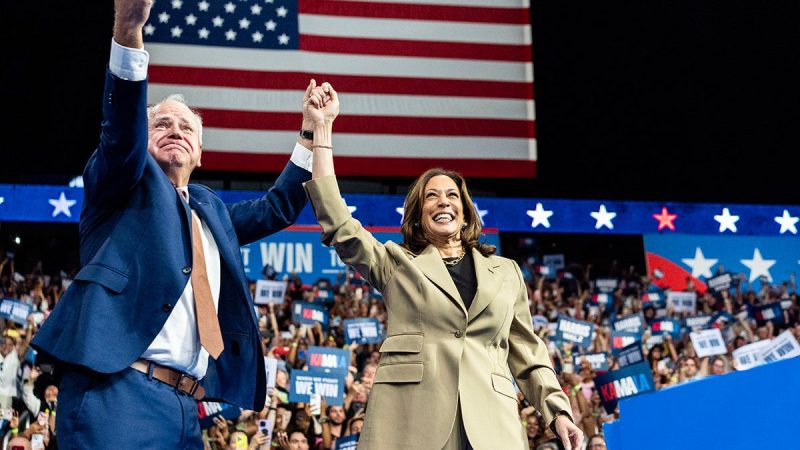The Democratic National Convention (DNC) has commenced in Chicago with the intention of nominating Kamala Harris and Tim Walz as the party’s candidates for the upcoming presidential elections. As the convention began, anti-Israel protesters made preparations to hold a counter-rally in response to the DNC’s stance on the Israel-Palestine conflict. This development highlights the multifaceted nature of political discourse and activism in the current socio-political landscape.
The decision to nominate Harris and Walz comes at a crucial time in American politics, with the nation facing numerous challenges on both domestic and international fronts. Harris, as the first woman of color and first South Asian American to be nominated for the vice presidency, represents a significant milestone in American political history. Her background as a former prosecutor and Senator has positioned her as a formidable candidate with a strong track record of advocating for social justice and progressive policies.
Similarly, Walz, the incumbent Governor of Minnesota, brings his experience in governance and leadership to the ticket. His tenure as governor has been marked by efforts to address issues such as healthcare, education, and climate change, making him a candidate with a focus on pragmatic solutions to pressing problems facing the country.
However, the nomination of Harris and Walz has not been without controversy, particularly regarding the DNC’s stance on the Israel-Palestine conflict. Anti-Israel protesters have expressed concerns about the party’s position on the issue, accusing it of being too sympathetic towards Israel and not doing enough to support the rights of Palestinians.
In response to these concerns, the protesters have organized a counter-rally to coincide with the DNC, drawing attention to what they perceive as a lack of accountability on the part of the party when it comes to addressing human rights violations in the region. The presence of these protesters serves as a reminder of the diversity of opinions within the Democratic Party and the broader progressive movement.
The clash between the DNC’s nomination of Harris and Walz and the anti-Israel protesters’ counter-rally underscores the complexities inherent in contemporary political activism. The push for social justice and equality often leads to debates and disagreements within political parties and movements, reflecting the diverse ideologies and perspectives that shape political discourse in the United States.
As the DNC unfolds in Chicago and the anti-Israel protesters make their voices heard, it is essential to recognize the importance of engaging with a range of viewpoints and fostering dialogue and understanding across ideological divides. Only through open and respectful communication can progress be made in addressing the pressing issues facing the nation and the world at large.




























